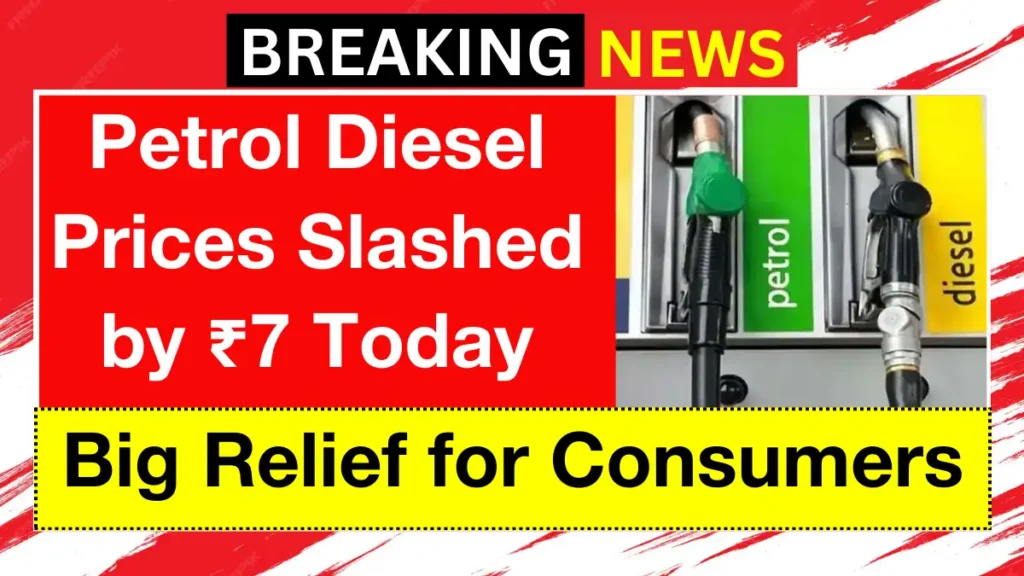Petrol and Diesel Prices Slashed by ₹7 Today – In a move that has brought cheer to millions, the government has announced a significant cut of ₹7 per litre in petrol and diesel prices.
This sharp reduction comes as a welcome relief for consumers who have been burdened by continuously rising fuel costs over recent months.

For many households and businesses, this price drop is a breath of fresh air amid growing economic pressures.
Why Were Fuel Prices So High?
Fuel prices have seen a steady rise due to a mix of factors such as high global crude oil prices, geopolitical tensions, and tax structures within the country.
Petrol and diesel costs directly influence not just personal transportation but also the price of goods and services, as transportation is a major component of the supply chain.
This had led to increased inflation and squeezed the budgets of daily commuters and transport-dependent businesses.
What Does the Price Cut Mean for Consumers?
A reduction of ₹7 per litre can lead to substantial savings, especially for those who rely heavily on vehicles for daily travel or business.
For an average commuter, this price drop could mean saving hundreds of rupees every month on fuel.
It also increases disposable income, allowing people to spend more on other essential needs or save.
Small business owners and transport operators stand to benefit greatly, as lower diesel prices reduce operational costs.
Impact on the Economy
Fuel price cuts generally have a positive ripple effect on the economy.
Lower transportation costs can reduce the prices of goods and services, helping control inflation.
It can boost consumer confidence and spending, which is crucial for economic growth.
Businesses may also find it easier to invest and expand due to reduced input costs, which in turn can create jobs and support the overall economy.
Looking Ahead
While this price cut is undoubtedly good news, the key will be its sustainability.
Fuel prices are influenced by global markets and domestic policies, so consumers hope that such relief continues or becomes a regular feature.
Moving forward, balancing affordable fuel with fiscal needs and encouraging alternative energy solutions will be important to keep inflation in check and promote long-term economic health.
Disclaimer: The information provided in this blog is for general awareness only and is based on current announcements and market trends. Fuel prices may vary by location and are subject to change without notice. Readers are advised to verify details from official sources before making decisions.